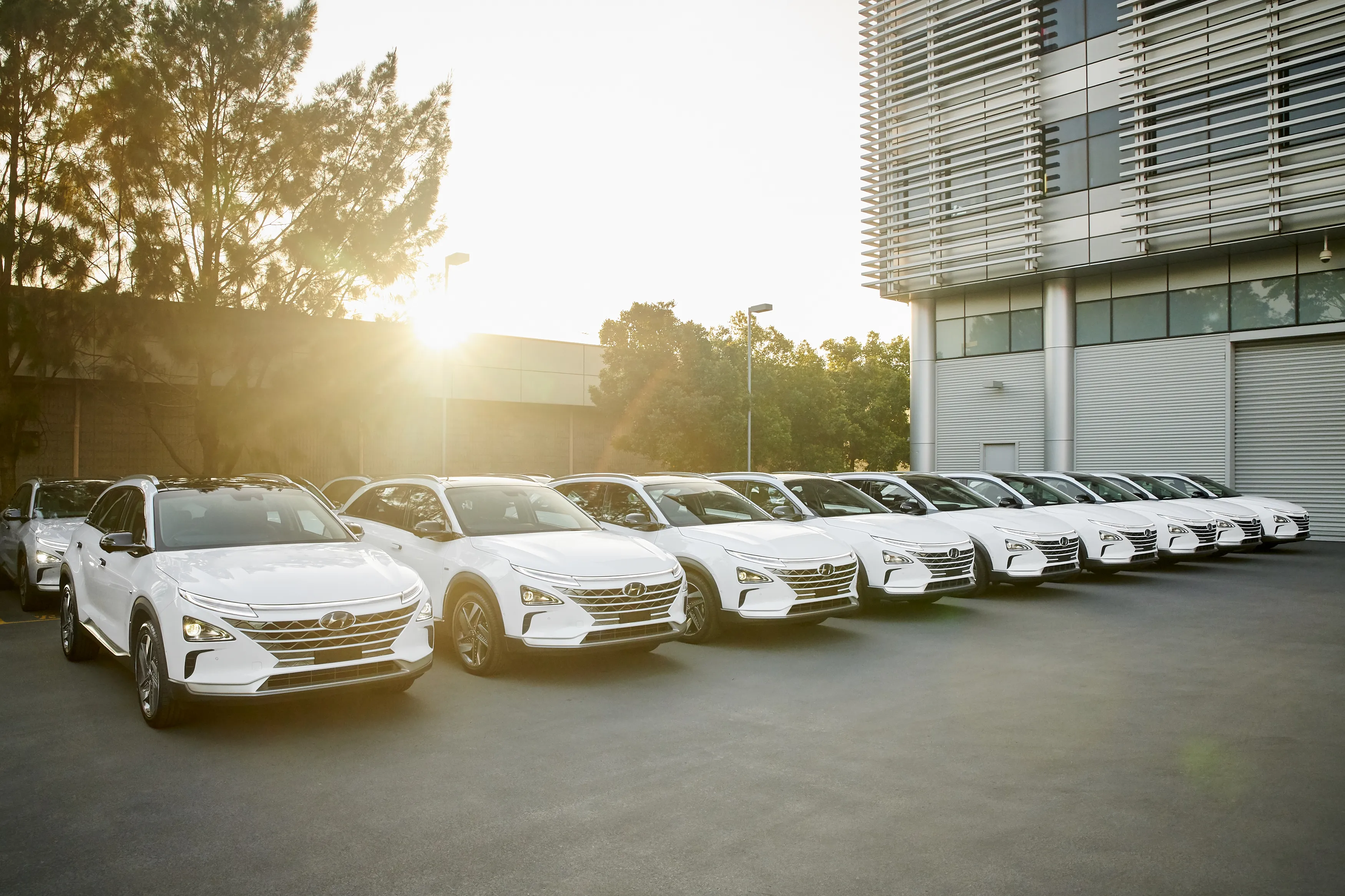A coalition of European partners has launched the Hydrogen Mobility Europe project (H2ME), co-funded with US$36 million from the Fuel Cells and Hydrogen Joint Undertaking (FCH JU).
The project will support the deployment of 200 fuel cell electric vehicles (FCEVs), 125 fuel cell range-extended electric (FC RE-EVs) commercial vans and 29 new hydrogen refuelling stations (HRS) in Austria, Belgium, Denmark, France, Germany, Iceland, Netherlands, Norway, Sweden and the UK by 2019.
H2ME is based around an
September 25, 2015
Read time: 2 mins
A coalition of European partners has launched the Hydrogen Mobility Europe project (H2ME), co-funded with US$36 million from the Fuel Cells and Hydrogen Joint Undertaking (FCH JU).
The project will support the deployment of 200 fuel cell electric vehicles (FCEVs), 125 fuel cell range-extended electric (FC RE-EVs) commercial vans and 29 new hydrogen refuelling stations (HRS) in Austria, Belgium, Denmark, France, Germany, Iceland, Netherlands, Norway, Sweden and the UK by 2019.
H2ME is based around an alliance of the four most ambitious hydrogen mobility initiatives in Europe: H2 MOBILITY Deutschland, Mobilité Hydrogène France, Scandinavian Hydrogen Highway Partnership and UK H2 Mobility, which will work together to make hydrogen-fuelled transport a reality in Europe.
The consortium, led by Element Energy, includes global leaders in the hydrogen and fuel cell sector, from fuel cells and car manufacturers Daimler, SymbioFCell, Hyundai, Honda, Intelligent Energy, Nissan, as well as infrastructure providers Air Liquide, BOC, H2Logic, ITM Power, Linde, McPhy, OMV, AREVA, EIFER, H2 Mobility Deutschland, HYOP, Icelandic New Energy, Communauté d’Agglomération Sarreguemines Confluences, to data monitoring and dissemination organisations Cenex, WaterstofNet.
The project will support the deployment of 200 fuel cell electric vehicles (FCEVs), 125 fuel cell range-extended electric (FC RE-EVs) commercial vans and 29 new hydrogen refuelling stations (HRS) in Austria, Belgium, Denmark, France, Germany, Iceland, Netherlands, Norway, Sweden and the UK by 2019.
H2ME is based around an alliance of the four most ambitious hydrogen mobility initiatives in Europe: H2 MOBILITY Deutschland, Mobilité Hydrogène France, Scandinavian Hydrogen Highway Partnership and UK H2 Mobility, which will work together to make hydrogen-fuelled transport a reality in Europe.
The consortium, led by Element Energy, includes global leaders in the hydrogen and fuel cell sector, from fuel cells and car manufacturers Daimler, SymbioFCell, Hyundai, Honda, Intelligent Energy, Nissan, as well as infrastructure providers Air Liquide, BOC, H2Logic, ITM Power, Linde, McPhy, OMV, AREVA, EIFER, H2 Mobility Deutschland, HYOP, Icelandic New Energy, Communauté d’Agglomération Sarreguemines Confluences, to data monitoring and dissemination organisations Cenex, WaterstofNet.








